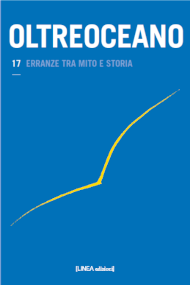No. 17 (2021): Mythical and Historical Wanderings

This volume focuses on the concepts of myth and history in migrant writings through two ways of perceiving life. The first approach is mainly objective and is solely based on observing historical and social facts as a mere backdrop to human actions. For economic migrants, the difficulties in finding a place to stay or a job, added to those of integration are often considered insurmountable problems, which are made even worse by incommunicability and the unbearable weight of silence experienced as an absence of unsaid and unheard words and of meaningful foreign words. Political exiles, on the other hand, center their writings around the dialectical relationship between private and public, which remains, nonetheless, subordinated to peculiar historical developments. The second approach is subjective and is more prominent in migrant texts since its aim is to reflect a multifaceted image of the self because of the plethora of behaviors and ideas it is exposed to. Inevitably, there is a contraposition between the old and the new world, between two parallel universes which simultaneously co-inhabit plural landscapes and situations, and appearing intrinsically true and authentic, as they convey both violence, suffering, distress and fear, as well as love and hope for life.












